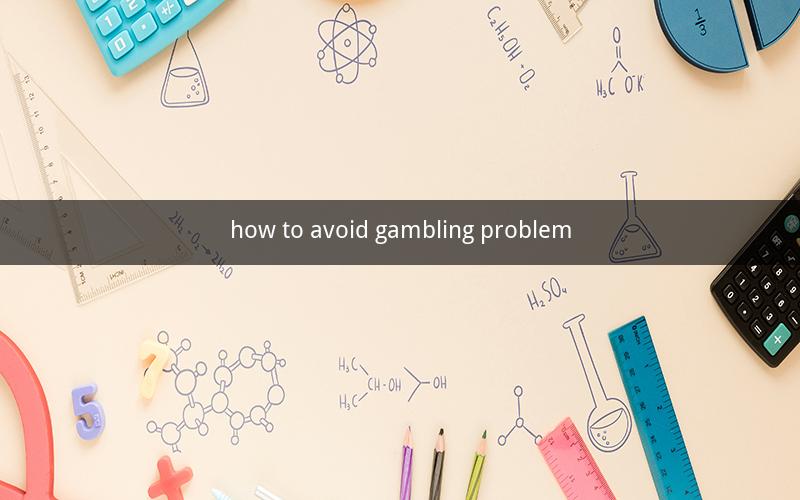
How to Avoid Gambling Problems: A Comprehensive Guide
Table of Contents
1. Understanding Gambling
2. Identifying Gambling Problems
3. The Importance of Awareness
4. Setting Limits and Boundaries
5. Finding Alternatives to Gambling
6. Strengthening Personal Support Networks
7. Professional Help and Resources
8. Education and Awareness Programs
9. The Role of Technology in Prevention
10. Conclusion
1. Understanding Gambling
Gambling is a form of entertainment that involves risking money or valuable items on an event with an uncertain outcome. It can range from casual games like poker with friends to more organized forms such as sports betting or lottery tickets. While gambling can be a source of excitement and enjoyment for many, it can also lead to serious problems if not approached responsibly.
2. Identifying Gambling Problems
Recognizing when gambling has become a problem is crucial. Signs of a gambling problem may include:
- Feeling compelled to gamble more frequently
- Lying to family or friends about gambling activities
- Neglecting responsibilities due to gambling
- Using gambling as a means to escape from problems or emotions
- Experiencing financial difficulties as a result of gambling
3. The Importance of Awareness
Awareness of the potential risks and consequences of gambling is the first step in preventing gambling problems. It is important to understand that while gambling can be enjoyable, it is also a form of risk that can lead to negative outcomes.
4. Setting Limits and Boundaries
Setting limits on the amount of time and money spent on gambling is an effective way to prevent problems. This can be done by:
- Establishing a budget for gambling activities
- Sticking to the budget regardless of wins or losses
- Taking regular breaks from gambling
- Using self-exclusion programs offered by gambling sites
5. Finding Alternatives to Gambling
Finding alternative activities to replace gambling can be beneficial. These alternatives may include:
- Hobbies such as painting, gardening, or sports
- Social activities like joining a club or volunteering
- Physical activities such as exercise or yoga
- Creative outlets like writing, music, or cooking
6. Strengthening Personal Support Networks
Building a strong support network can provide emotional and practical support. This can involve:
- Sharing concerns with friends and family
- Joining support groups for individuals with gambling problems
- Seeking professional help from counselors or therapists
- Engaging in community programs aimed at addressing gambling issues
7. Professional Help and Resources
When gambling problems are severe, seeking professional help is essential. Professional resources include:
- Therapists specializing in gambling addiction
- Counselors who can provide guidance on managing gambling issues
- Hotlines and online support networks
- Treatment facilities offering inpatient or outpatient programs
8. Education and Awareness Programs
Education about the risks of gambling can be an effective prevention tool. Programs may include:
- Workshops on responsible gambling
- Public awareness campaigns
- School programs that teach about the risks of gambling
- Employee training in industries where gambling is prevalent
9. The Role of Technology in Prevention
Technology can play a significant role in preventing gambling problems. This includes:
- Gamblers anonymous apps and websites
- Tools that monitor and limit spending on gambling platforms
- Self-help resources available online
- Software that provides information on the risks of gambling
10. Conclusion
Avoiding gambling problems requires a combination of self-awareness, responsibility, and support. By understanding the risks, setting limits, finding alternatives, and seeking help when needed, individuals can enjoy gambling as a form of entertainment without the risk of addiction.
---
Related Questions and Answers
1. Question: What are some common signs of a gambling problem?
Answer: Common signs include feeling the need to gamble more, lying about gambling activities, neglecting responsibilities, using gambling as an escape, and experiencing financial difficulties.
2. Question: How can setting limits help in avoiding gambling problems?
Answer: Setting limits helps by keeping gambling activities within a controlled and manageable framework, reducing the likelihood of excessive or risky behavior.
3. Question: What are some healthy alternatives to gambling?
Answer: Alternatives include hobbies, social activities, physical exercise, and creative pursuits.
4. Question: How can technology help in preventing gambling problems?
Answer: Technology can help through gamblers anonymous apps, spending limits on gambling platforms, and resources for self-help and education.
5. Question: Is it possible to enjoy gambling without developing a problem?
Answer: Yes, it is possible with responsible gambling practices such as setting limits and being aware of the risks.
6. Question: Can family and friends help in preventing gambling problems?
Answer: Yes, family and friends can offer support, monitor gambling behavior, and encourage seeking help if needed.
7. Question: What kind of professional help is available for gambling problems?
Answer: Professional help includes therapists, counselors, hotlines, and treatment facilities specializing in gambling addiction.
8. Question: How can education help in preventing gambling problems?
Answer: Education helps by increasing awareness of the risks and consequences of gambling, promoting responsible behavior.
9. Question: Are there any legal tools to prevent gambling problems?
Answer: Yes, there are legal tools such as self-exclusion programs and age verification requirements to prevent minors from gambling.
10. Question: Can a person recover from a gambling addiction?
Answer: Yes, recovery from a gambling addiction is possible with appropriate treatment, support, and a commitment to change.